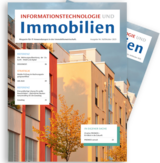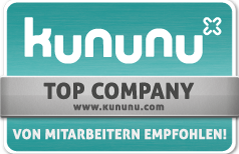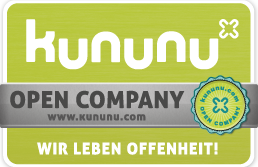The lowdown on e-tendering in the public-sector tendering process
The term e-tendering summarises all the steps, starting with the announcement of a call for tender and competitive bidding and continuing with the submission of tender documents to potential suppliers, electronically aided completion of the tender documents, management of evidence to prove the bidder’s expertise, capability and reliability as well as all company or order-related documents, right up to submission of an offer – if necessary with the aid of a digital signature – awarding the contract and contract conclusion.
In a largely paper-free process, the process should be simpler. A study in 2008 revealed that, in Germany, the total annual costs for announcing and researching tenders, requesting and sending the documents for submission in paper form and creating and evaluating the tenders amounted to approximately EUR 19 billion. These costs are reduced significantly with the electronic procedure, as the entire process is optimised. Process security and transparency measurably increase, as subsequent manipulation is more difficult and the procurement processes are less bureaucratic.
The benefits for tendering companies are simplified access, the ability to search for public and sometimes even Europe-wide tenders in a targeted way, the option to view tender documents straight away free of charge, faster processing, and direct transfer of the offers, which in turn significantly reduces the risk of sent documents not being delivered.
Some forms of electronic tendering are already in use. Authorities and public bodies use portals to announce calls for tender and provide the tender documents for bidders to download. Many municipal bodies and church-owned institutions still place ads in the local papers or conventional printed publications. Transferring the bids using electronic means is already commonplace in most cases. Depending on the tendering procedure, bidders are still free to decide whether to submit offers electronically or in paper form. This mixture of paper and online in the scope of a tender will be a thing of the past by autumn 2018 at the latest. In addition, German and international print media and announcement platforms will continue to provide relevant links.
In this context, the EU has already looked into this, and Germany therefore also implemented the European tendering procedure in its national legislation last year. The new procedural legislation applies to public contract award procedures, sectoral contract award procedures and the award of concessions. Complex projects in the area of infrastructure that are justified as a private public partnership (PPP) can now be implemented more easily. Due to the changes from the new tender reform, the thresholds for contracting authorities have also changed (figure 1).
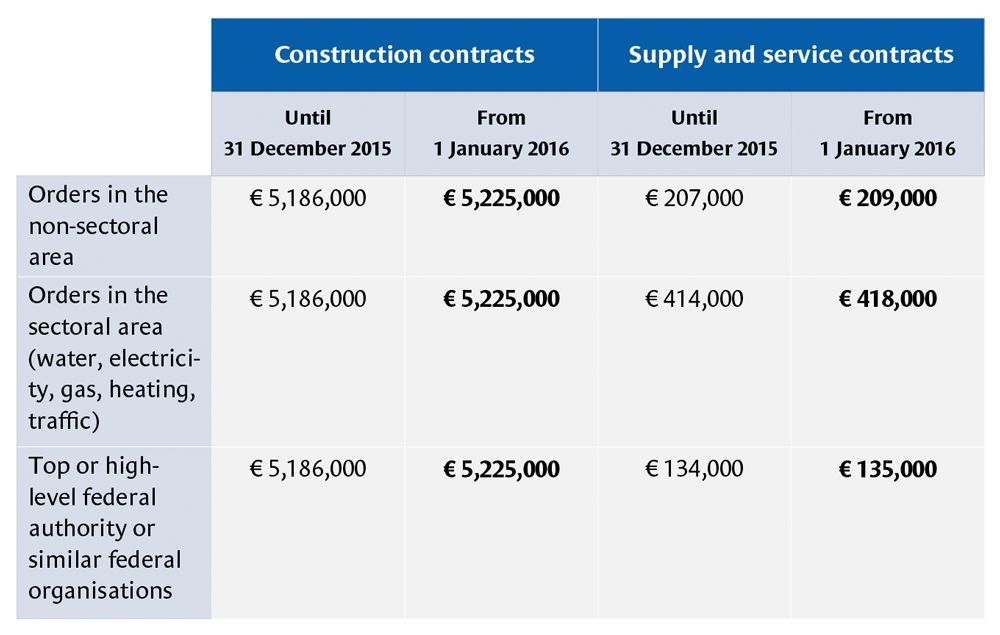
Figure 1: There are new thresholds in the European Union for awarding public orders.1
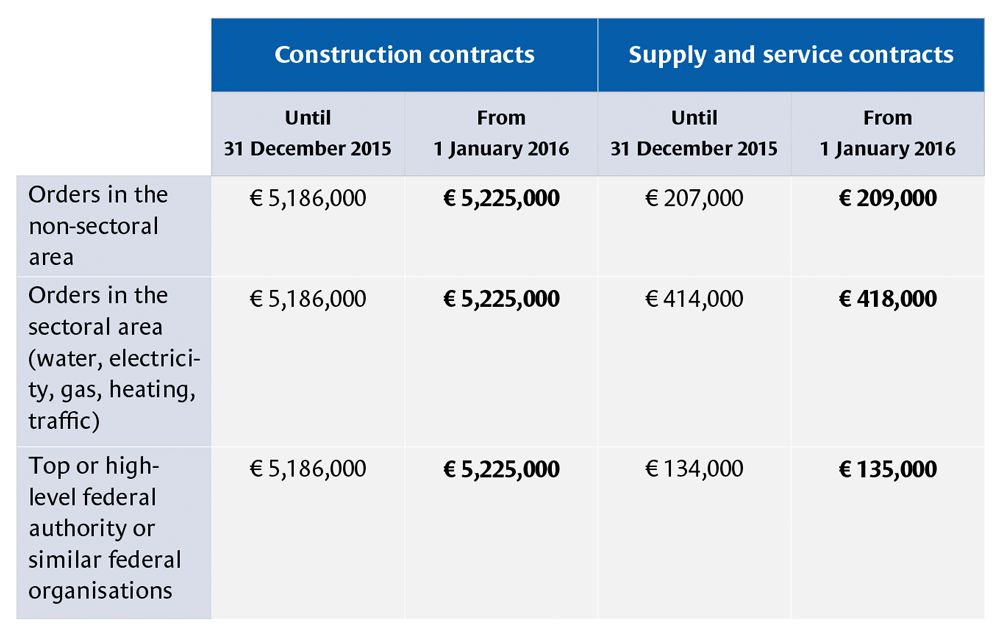 Figure 1: There are new thresholds in the European Union for awarding public orders.1 |
The binding e-tendering procedure will be implemented step by step for all actors up to 2018. Figure 2 shows a summary of the deadlines. It is now important to set out these steps as technical standards by 2018, so that all those involved can use e-tendering and its portals. Many public companies, such as local authorities, utility companies and municipal housing companies, already use SAP® in procurement or the awarding department and work with service specifications. Linking this to a tendering platform means that tender and offer process can now be processed using SAP® tools.
For this purpose, PROMOS consult and its cooperation partner Schnittstelle BAU have developed SAP®-compliant solutions such as the SAP® GAEB interface, which they will market together. GAEB is not merely a data exchange format, but a process-supported standard from the “Gemeinsame Ausschuss Elektronik im Bauwesen” (GAEB; German Joint Committee for Electronics in Construction), which has set itself the ongoing task of supporting processes in the construction industry through data processing. The GAEB plays a central role in the awarding of construction services and provides significant support for the digital process for obtaining quotations or calling for tenders using the GAEB certification standard. The SAP® GAEB interface from PROMOS is a dialogue interface that is called as a transaction in SAP®. This tool-supported purchasing procedure enables immediate data exchange between the awarding authority and the bidders involved in the tendering process. Here, the data-related difference between GAEB and SAP® data is compensated for without any major loss of content. Standardised service specifications in SAP® access the PM/CS and MM modules, and thus create orders, purchase requisitions and purchase orders, as well as effectively all services in the area of credit-side business processes. The bidders can then calculate and price these (with regard to quantities and conditions), sign them via upload to a tender portal and thus transfer them to awarding authorities in encrypted form via the Internet and place them in their tender tool without the need to exchange documents via e-mail or post. This ensures compliance with the current legal specifications.
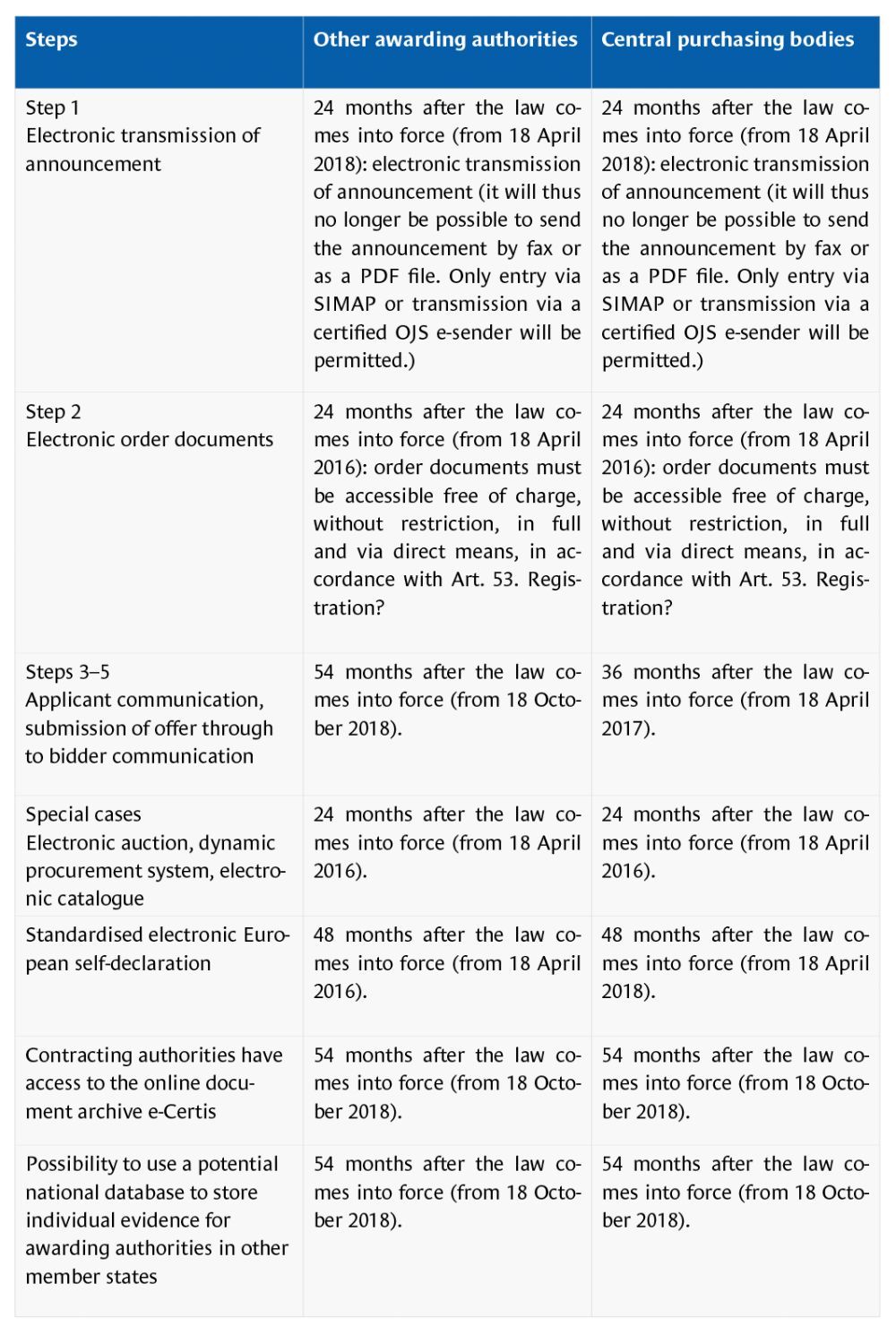
Figure 2: Implementation deadlines for e-tendering in accordance with EU guidelines.2
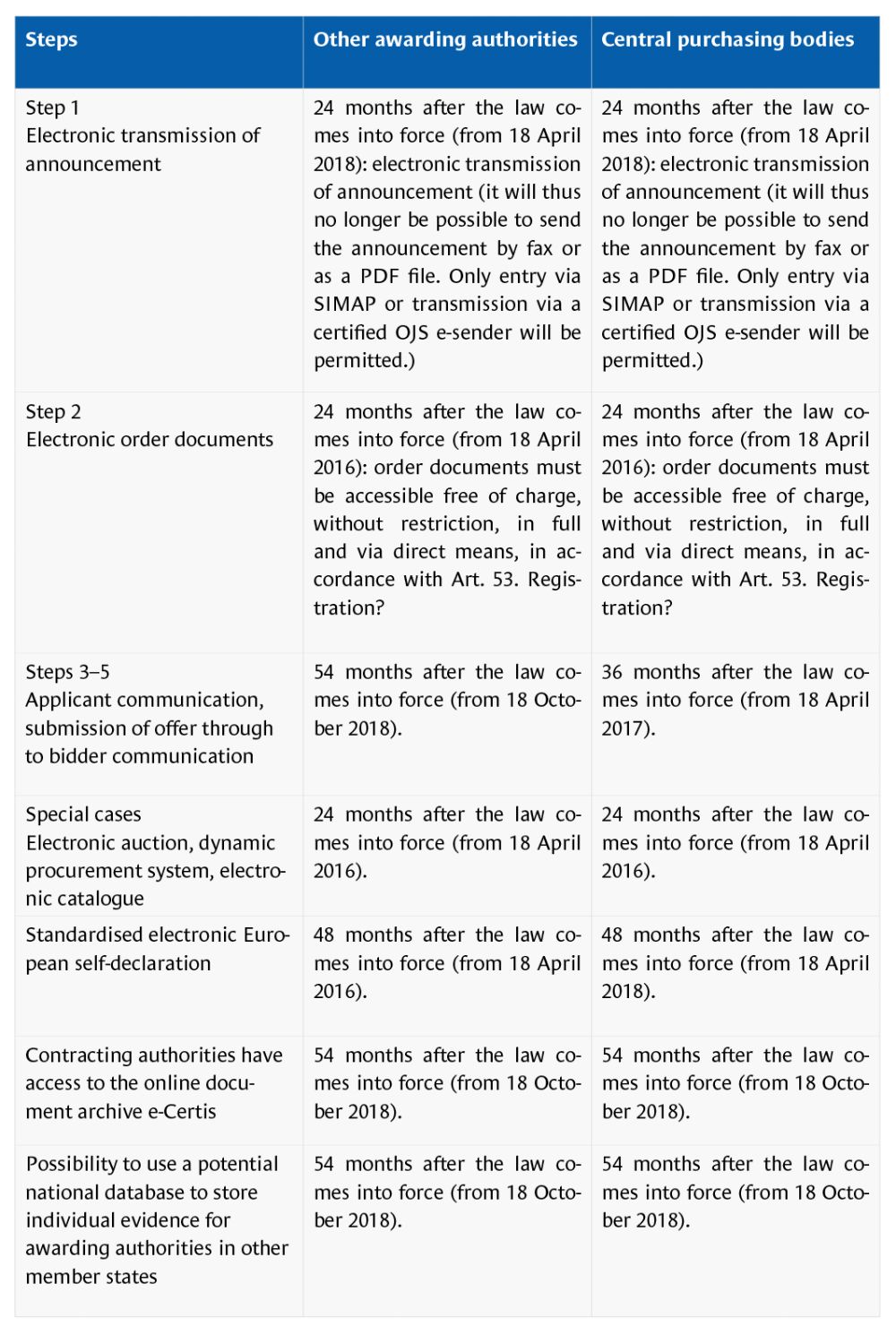 Figure 2: Implementation deadlines for e-tendering in accordance with EU guidelines.2 |
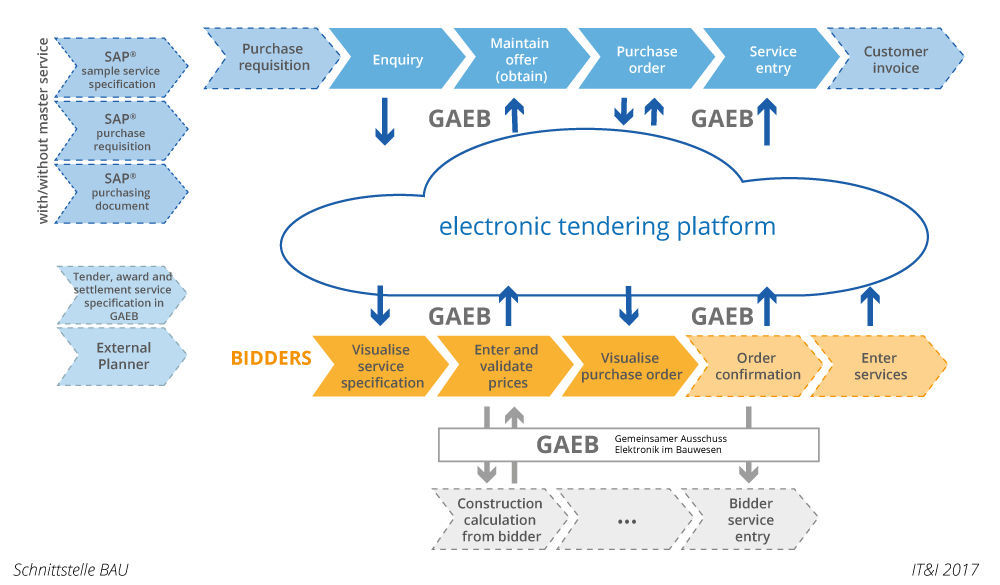
Figure 3: The ticket for access to service specifications in SAP® is called GAEB.
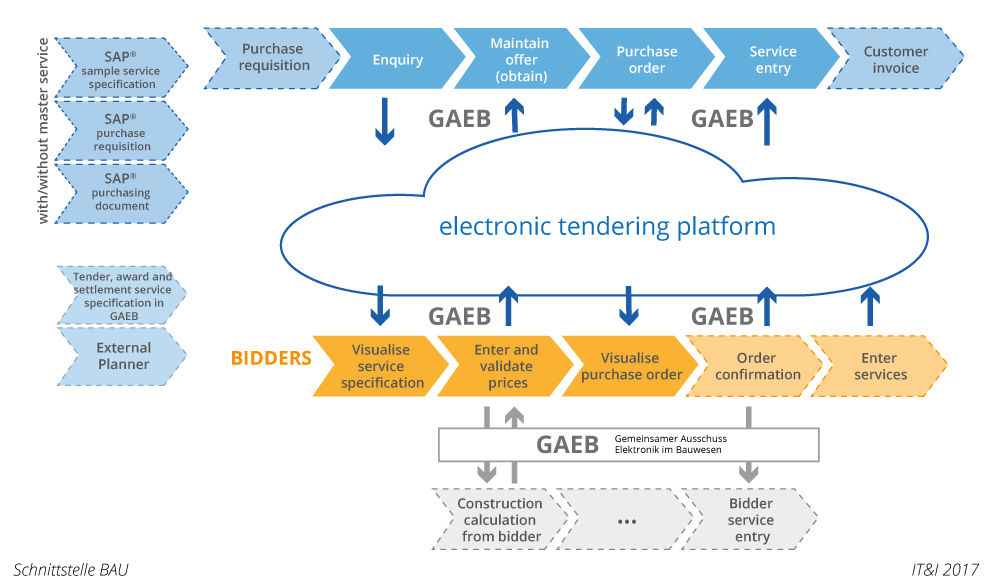 Figure 3: The ticket for access to service specifications in SAP® is called GAEB. |
Many bidders are not unknown parties. Extensive relationships exist already, including via the easysquare platform if existing PROMOS customers have implemented this product. They can therefore be integrated into the tender process with ease.
A tender platform developed by Administration Intelligence (AI AG), a cooperation partner based in Würzburg, can be seamlessly integrated into the network of Schnittstelle BAU and PROMOS. This modular platform solution can be used by operators of established tender platforms as well as contracting authorities. Its special digital profile provides announcements, bidder registration, information and message functions, client compatibility, signature and encryptions, a cover sheet procedure and, finally, the offer submission. This results in an independent, legally compliant tender platform that is free from media discontinuities and is based on the OSCI standard. The technological link between the three partners is the powerful GAEB Parser, developed by Schnittstelle BAU. This works in the background, reading, checking and preparing GAEB files for display in the bidder tool wingaebxml, delivers the prepared files to the PROMOS SAP® GAEB interface for smooth processing and validates offer files for the offer submission when they are uploaded to a tender platform with AI AG technology, which includes well-known names like eVergabe.de, Vergabe24.de and the Vergabekooperation Berlin platform, which Berliner Wasserbetriebe has been running since 2016.
Schnittstelle BAU is also an authority on e-tendering for the bidder side. Bidder training and advice regarding the required electronic signatures for the bidding companies, service providers and suppliers are just some of the components of their activities.
Process consulting regarding integration of the tender software used within the company and by external engineering firms into the awarding authority’s SAP® system and, in turn, connection of the purchasing systems to tender and announcement platforms is the real core of Schnittstelle BAU’s consulting activities, and this is based on 20 years of consulting experience.
In a workshop designed especially for PROMOS customers and interested parties, you can benefit from Schnittstelle BAU’s wealth of experience and gain an insight into the experiences, development steps and requirements from the perspective of the awarding and purchasing side as well as the bidder side.
- http://www.derenergieblog.de/wp-content/uploads/Tabelle.png
- http://blog.cosinex.de/wp-content/uploads/2014/03/Umsetzungsfristen-E-Vergabe.png
Author:

is managing director of the consulting and software company Schnittstelle BAU. As an expert for procurement processes in construction, Susanne Tiedemann advises purchasing organisations and specialist departments in industry and public administration. E-tendering is one of her specialist areas. The validation tool wingaebxml, which was developed in-house, has been integrated into the PROMOS SAP® GAEB purchasing process.
